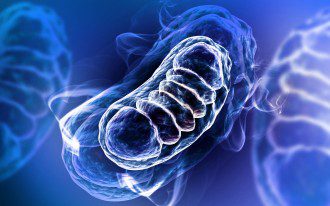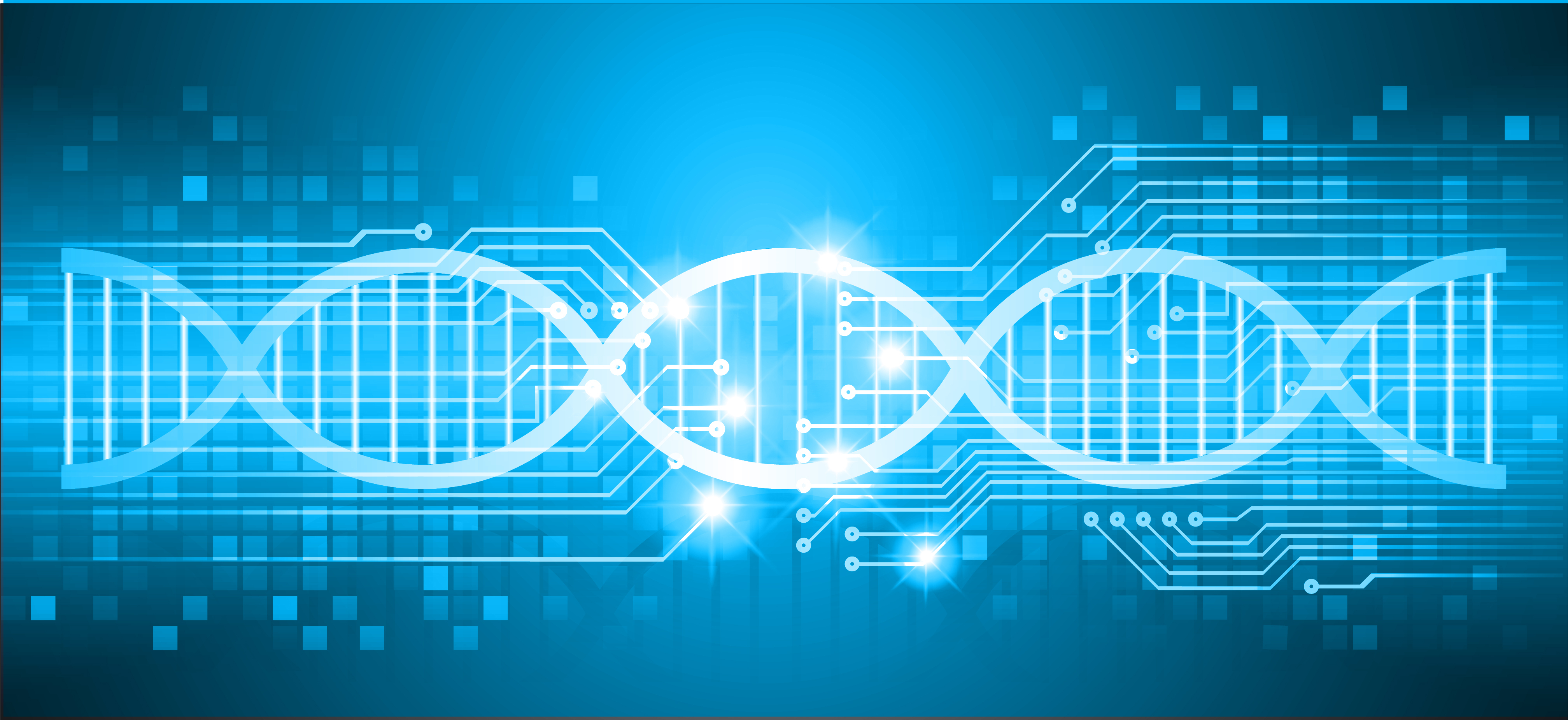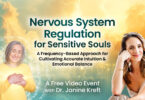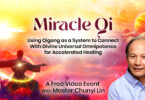Contributing Writer for Wake Up World
Chances are, you know at least one person who has been touched by cancer. It’s a terrifying and life-altering diagnosis. Even more so if facing conventional cancer treatments like chemotherapy and radiation, which carry their own heavy side-effects without any guarantee they will help the situation. Some would say conventional treatments are far worse than the disease itself.
In light of this, many are taking their health into their own hands and living lifestyles that will (hopefully) keep cancer at bay. But before we can know how to prevent the disease, it’s important to understand how cancer comes about in the first place. We can then move forward with dietary modifications and lifestyle adjustments that will help support ultimate vitality and well-being.
[pro_ad_display_adzone id=”110028″]
Thomas Seyfried Ph.D, a brain cancer researcher with an impressive 25+ years of expertise, gave a revolutionary presentation about cancer at the Ancestral Health Symposium held by Harvard Law School. The lecture turned many of the ideas we have about the disease on its head. Dr. Seyfried believes cancer is not caused by genetic mutations, but rather linked with mitochondrial disease. Moreover, he stated that cancer can be successfully treated with a special high-fat diet. All and all, Dr. Seyfried presents a compelling case for how we should approach not only preventing cancer in the first place, but how to address it if cancer should gain a foothold when our health is not at peak levels.
Profile of a cancer cell
“The company line is that cancer is caused by mutations (changes) in DNA that transform healthy, well-behaved cells into reckless, ravenous, immortal renegades. These mutations hijack the set of instructions encoded in the cells’ DNA, and scientists think these mutations cause cells to go wild.” ~ Georgia Ede, MD in “What Causes Cancer?”
Currently, medical schools (and their graduates) subscribe to the idea that cancer is directly linked to genes going completely out of control, where something toxic comes along like a chemical or excess radiation and subsequently attacks DNA. These mutant cells then begin to divide like crazy and eventually take over the body. Conventional medicine believes that to rid the body of renegade cells, we need to flood the system with further toxic chemicals and radiation. This disconnect of logic has many questioning the validity of their recommendations.
Cancer cells behave very differently than normal cells, this we know. They grow rapidly and pay no heed to anti-growth signals and death cues that would keep healthy cells in check. Cancer cells establish their own blood supply and will divide forever. The more aggressive the cancer cell, the higher chances it will invade local tissue and/or travel in the bloodstream to other parts of the body (metastasize).
“Cancer cells have unstable DNA, which mutates easily and is therefore constantly changing. This is why there are so many mutations found in cancer cells. This “genomic instability” is viewed as a strong suit by scientists who believe in the mutation theory. They think that the tumor cells keep mutating to improve themselves, and that the ones with the most clever mutations are the ones which survive best and reproduce best (Darwinism—survival of the fittest). They think of cancerous cells as invincible—as stronger, faster, and smarter than healthy cells. But this isn’t true.” [source]
[pro_ad_display_adzone id=”110028″]
Cancer cells do grow faster than normal cells, but it’s not because they are dividing more quickly. It’s due to the fact they are unregulated. Tumor cells are also more vulnerable than normal cells and are more sensitive to heat and starvation. When the body is under stress, cancer cells are the first to die. Dr. Seyfried thinks mutations are simply red herrings, where we are actually dealing with a much deeper issue.
Consider this: there is not one example where a mutation caused the same kind of cancer every time — and mutations associated with certain cancers only caused the disease in particular individuals. Cancer cells themselves within the same tumor can have very different mutation characteristics.
Dr. Ede adds:
“Here’s the thing: if you transplant mutated cancer cell DNA into a healthy cell, the healthy cell almost never becomes cancerous. Only 2 out of 24 experiments were successful in transforming normal cells into cancer cells (and scientists couldn’t be sure that viral contamination wasn’t to blame). These results essentially kill the mutation theory dead on the spot. Just think about it: if cancer is a genetic disease, based on hundreds of thousands of mutations, what are we supposed to do, create hundreds of thousands of different drugs to treat it?”
So if mutations aren’t causing cancer, what does?
Damaged mitochondria and their role in cancer
The answer lies in tiny structures within our cells that turn the food we consume into energy. Mitochondria are intricately folded membranes that house unique enzymes, fats and proteins, which in turn are used to trigger sophisticated chemical reactions. They shatter the chemical bonds within food molecules in order to absorb the energy into the cell.
Normal cells with high functioning mitochondria utilize a elegant system of respiration to transform a nutrient (fat, carbohydrate, or protein) into high quantities of energy. The process demands oxygen in order to break food down into benign carbon dioxide and water. But with a cancer cell, the process used is fermentation, which inefficiently uses either glucose or the amino acid glutamine from protein to generate small levels of energy. [Fats cannot be fermented, which will be an important distinction to come.] Fermentation does not need oxygen and doesn’t fully break down food particles — what it does break down results in lactic acid and ammonia, which are toxic waste products.
Strangely, cancer cells will still resort to fermentation even when there is plenty of oxygen. The reason for this is the malignant cells are desperate because they cannot rely on respiration for energy production. Why? Their mitochondria are damaged.
Elements that can damage mitochondria include radiation, toxic chemicals, viruses and chronic inflammation. According to Dr. Ede, “It just so happens that some of the genes most strongly linked to cancer (“oncogenes”) are those that code for mitochondrial proteins.”
Mutations in these genes are sometimes found in cancer cells:
- BRCA-1 (breast cancer gene)
- APC (colon cancer gene)
- RB (retinoblastoma gene)
- XP (xeroderma pigmentosum gene)
And viruses strongly linked with cancer are also known to harm respiration:
- Kaposi’s sarcoma virus
- Human papilloma virus (cervical cancer)
- HIV
- Cytomegalovirus
When our mitochondria are damaged and unable to produce high levels of energy, the body suffers by gradually succumbing to deterioration. On a cellular level, this manifests as unstable DNA, loss of unique shape, disorganization and uncontrolled reproduction. In other words: cancer.
Besides limiting exposure to radiation and toxic chemicals, and keeping our immune system in top form to efficiently battle viruses, what is the best way to stop mitochondrial damage and cancer?
Most effective diet for preventing and healing cancer
Virtually all tumors are heavily dependent on glucose (a simple sugar found in carbohydrates). Moreover, it’s well-documented that there is a strong link between high blood sugar (hyperglycemia), diabetes and cancer. When we have high blood glucose levels, insulin levels rise as well. This in turn stimulates cancer cells to take in more glucose for fuel — which makes it easier for cancer cells to feed themselves. Insulin also increases fermentation pathways, further damaging the mitochondria and cells.
Additionally, high blood glucose raises a circulating hormone called IGF-I (Insulin-like Growth Factor I). Receptors for this hormone on the surface of cancer cells encourage rapid growth.
Dr. Seyfried believes cancers are not an assortment of unrelated diseases, it’s actually only one disease — mitochondrial disease. Damaged mitochondria can only use glucose and glutamine for fuel, and cannot fully use fat because it requires respiration. Whereas cells with healthy mitochondria function best when they burn fat for fuel. This is good news for preventing and treating cancer since we now know what energy source will starve the malignant cells: fat. And a ketogenic diet is a perfect example of how to do just that.
As with any new dietary program, it’s important to talk with your wellness practitioner before beginning — especially if you are on medication. A ketogenic diet is very specific and it’s crucial you enlist someone knowledgeable to avoid pitfalls. Those with kidney disease should not use a ketogenic diet. Dr. Seyfried recommends a modified low-calorie ketogenic diet, which consists of 80% fat and the remaining 20% being made up of protein and carbohydrate. You want to avoid excessive protein because it means extra amino acids like glutamine — which feeds cancer cells. Since both protein and carbohydrates can raise blood glucose levels, the lion share of the diet is fat.
To begin the diet, you need to either water fast for 3-5 days or limit carbohydrates to less than 12 grams per day and protein to 0.8 to 1.2 grams per kg body weight per day. According to Dr. Ede, your initial caloric intake should be about 30% below your resting daily metabolic requirements (free basal metabolic rate calculators are available online).
For further information about the diet — as well as the coorelation between cancer and damaged mitochondria — read Dr. Ede’s excellent series on the subject, “What Causes Cancer?“
Article Sources:
- “Cancer as a Metabolic Disease: On the Origin, Management, and Prevention of Cancer” Thomas Seyfried Ph.D, Wiley Publishers, 2012
- “What Causes Cancer? Part I“
- “What Causes Cancer? Part II“
- “Cancer Part III-Dietary Treatments“
About the author:
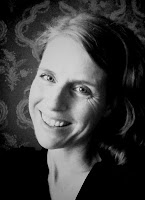 Carolanne Wright enthusiastically believes if we want to see change in the world, we need to be the change. As a nutritionist, natural foods chef and wellness coach, Carolanne has encouraged others to embrace a healthy lifestyle of organic living, gratefulness and joyful orientation for over 13 years.
Carolanne Wright enthusiastically believes if we want to see change in the world, we need to be the change. As a nutritionist, natural foods chef and wellness coach, Carolanne has encouraged others to embrace a healthy lifestyle of organic living, gratefulness and joyful orientation for over 13 years.
Through her website Thrive-Living.net, she looks forward to connecting with other like-minded people from around the world who share a similar vision. You can also follow Carolanne on Facebook, Twitter and Pinterest.
Further reading from Carolanne Wright:
- Seed Bombs: A Creative (and Fun) Mission to Save the Bees and Butterflies
- Mind Control, Subliminal Messages and the Brainwashing of America
- Autistic Boy with Higher IQ Than Einstein Discovers Gift After Removal from State-Run Therapy
- Monsanto Charged with Crimes Against Nature and Humanity – Set to Stand Trial in 2016
- Dr Sebi: The Man Who Cures Aids, Cancer, Diabetes and More
- Politicians in California May Soon be Forced to Wear Corporate Sponsor Patches Like Nascar Drivers
- Plastic-Eating Mushroom Discovered in the Amazon Rainforest — A Solution for Our Trash Saturated World?
- Big Pharma and Organized Crime — They are More Similar Than You May Think
- Over 100 Scientific Studies Agree: Cannabis Annihilates Cancer
- Emotional Energetic Healing: The Future of Medicine is Here
- Why Every Parent Should Consider Unschooling
- The Greenhouse of the Future: Grow Your Own Food Year-Round With This Revolutionary System
- First U.S. City Produces More Electricity Than It Uses — With 100% Renewable Technology
[pro_ad_display_adzone id=”110027″]

